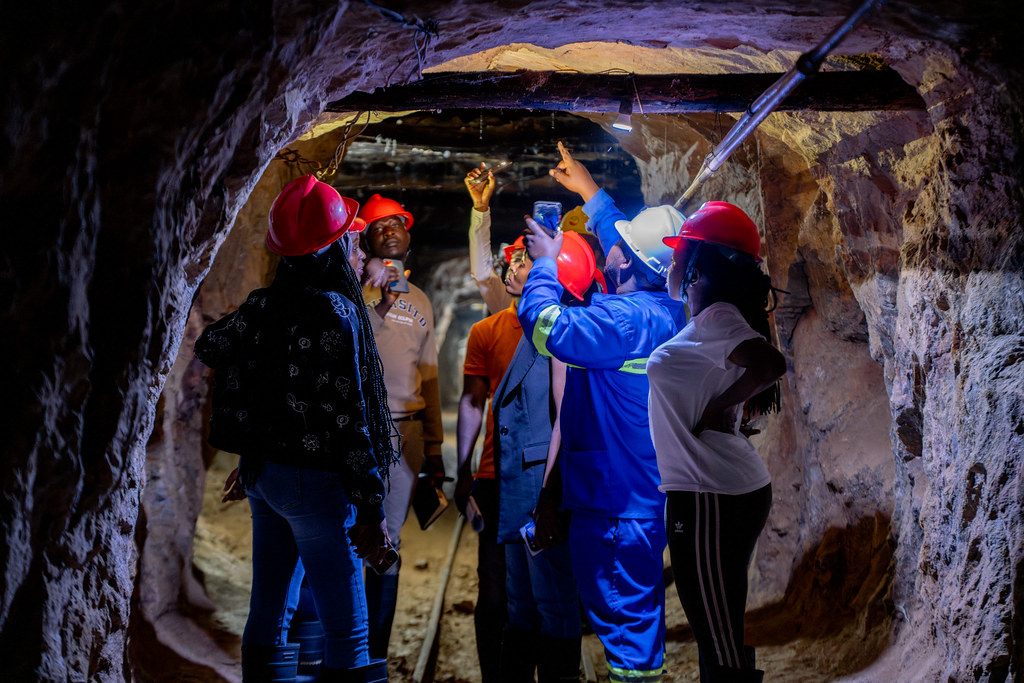One Health – OH
September 28, 2025 2025-11-06 13:33One Health – OH
One Health (OH) Option
Delivery Mode: Blended
First Semester – (August – December is delivered entirely online)
Second & Third Semesters – (January – December is delivered in person at UGHE’s Butaro Campus in Rwanda)
The One Health option within the MGHD program is designed to equip students with the skills and knowledge to tackle these challenges effectively. Recognizing the interconnectedness of human, animal, and environmental health, this option emphasizes a collaborative, holistic approach to problem-solving, blending expertise from multiple disciplines and sectors. The program will provide cross-disciplinary training, enabling candidates to understand both the technical dimensions and the broader social contexts in which One Health challenges arise. This includes exploring the interplay between environmental changes, zoonotic diseases, food security, and public health while fostering the capacity to address these issues through systems thinking and innovative solutions.
By focusing on integrating perspectives from fields such as veterinary medicine, environmental science, public health, and policy, the program ensures graduates are prepared to navigate the complexities of One Health challenges. The One Health option aims to prepare leaders who can bridge gaps between disciplines and sectors, offering both a broad base of knowledge and targeted skills. Through a transdisciplinary, multi-sectoral, and holistic framework, graduates will be equipped to design and implement interventions that improve the health of humans, animals, and the environment. This approach not only supports sustainable health outcomes but also addresses the systemic drivers of health disparities and environmental degradation, advancing global health equity and resilience.

At the end of the program students will be able to:
- Identify the interconnectedness and interdependence between human, animal, and environmental health.
- Apply the One Health approach across diverse contexts and real-world situations.
- Critique previous successes of One Health surveillance, particularly at the animal- human- ecosystem interface.
- Apply One Health principles and tools in responding to global health challenges.
- Identify gaps or challenges in implementing One Health surveillance programmes at the national, regional and global level.
- Interpret and communicate the results of relevant One Health research.
- Develop innovative strategies for promoting healthy coexistence between humans and animals in sustainable local and global ecosystems.
Course Content: These courses are delivered during the 2nd and 3rd Semesters
During the course of this program, students will study in the core MGHD curriculum, followed by the One Health focused curriculum below.
Module Code |
Module Name | Credits |
LMG9117 | Cross-Sectoral and Interdisciplinary Leadership | 10 |
OHE9121 | Infectious Disease Management | 5 |
OHE9122 | Food Security | 5 |
OHE9123 | Climate Change & Health | 5 |
OHE9124 | Ecosystem Health | 5 |
OHE9125 | Pandemic Preparedness & Response | 5 |
OHE9126 | Human, Animal and Environmental Dimensions of Neglected Tropical Diseases | 5 |
OHE9127 | One Health Field School | 20 |
POH9131 | Practicum – One Health | 50 |
Total Credits | 110 | |
Apply for UGHE Scholarships or Mastercard Foundation Scholars Program
One Health FAQs
Is One Health For Me?
If you are interested in getting 21st Century skills needed to address challenges in our rapidly changing world. The One Health option allows students to place themselves, with their various professional, academic and cultural backgrounds, into day-to-day health delivery.
What is a Career in One Health Like?
Students choose to pursue One Health in order to gain business skills required for a management role in the global health field. The potential career you could apply your skills include:
➤ Research (e.g. disease surveillance, researcher, infectious disease specialist)
➤ Education (e.g. lecturers)
➤ Public sector & decision making (e.g. ministers, members of parliament, WHO, UN, WFP advisor, urban planner, environmental health policy makers, policy analyst)
➤ Community & NGOS (e.g. foundation staff, climate change leaders, community research coordinator, private sector product development, community development officer, health coordination officer, extension officer, NGO program manager, social worker)
➤ Private sector & engineering (e.g. water engineer, leader of a pharmaceutical company)


